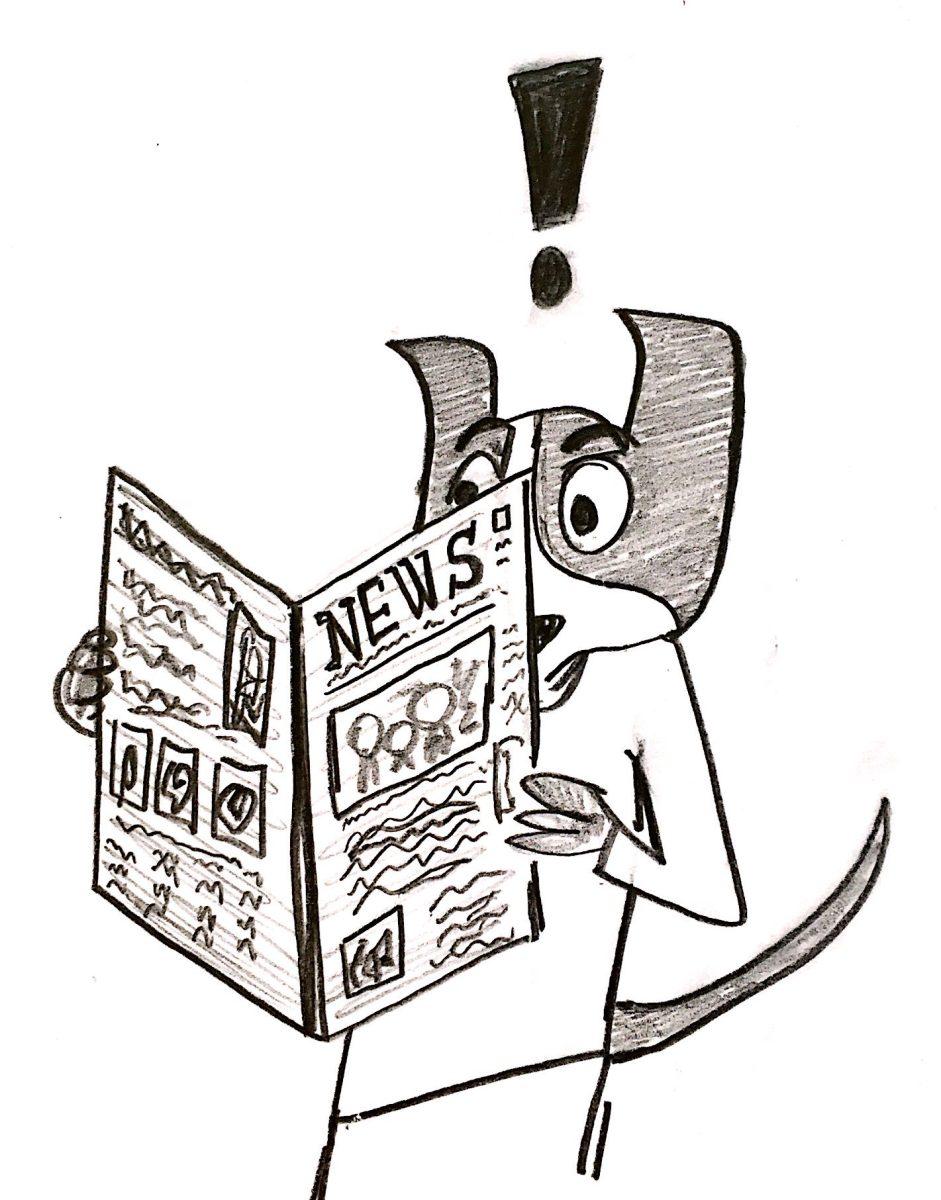How to understand the news and olds of media and what to do when you see the headlines
In the news: California on fire, record cold temperatures coming in, unrest in Hong Kong where a protestor was shot, still more on the impeachment probe into Donald Trump, a power vacuum in Bolivia, and the internet still can’t filter or remove child abuse. And that’s just from the New York Times evening briefing I skimmed this morning.
Everyday, people are bombarded with new information. According to a study done by the Telegraph, a U.K Media company, we receive the equivalent of a hundred seventy-four newspapers a day in information. And out of all this information, it’s no secret that the most terrible heart—or gut—wrenching stories make headlines. But the real question is this: what are we, the consumers of news, supposed to do with this much information?
We learn new things about places all over the world, new things about the U.S or the crime rate or obscure laws or depressing new facts about the history of slavery in Haiti. But what are people hoping to get out of all of it? For those who sit on their couch and don’t do anything anyway, are they any better off knowing about a terrorist attack in France than if they learned about a robbery in Texas, or a plane crash in the Atlantic? Wouldn’t it be better if they learned nothing at all? Even for those of us who consider ourselves informed citizens, what are we going to do right now about a political crisis in Uzbekistan?
They say ignorance is bliss, and I always hated to hear that. It was an excuse for people to be stupid. It was also diminishing of the fact that some people give their lives to make sure others are informed, to make sure media remains free and unbiased. But would people really be better off not knowing?
I would argue not. I would say that it is more important than ever to be informed, even when it’s something obscure or something awful and violent that we have no control over. People need to be informed because it will help them make better decisions in their own lives.
When we hear about a dictatorship in North Korea, it reminds us to vote and the importance of maintaining American Democracy. When we hear about a tragedy in another city or state, it reminds us to strengthen the bonds of our community, and to ensure something similar doesn’t happen again, whether through political legislation or social action. The problem is not taking action. Sitting on a story and saying “there’s nothing I can do” is the wrong answer. The answer is to go out and focus on what you can do to make sure the next news crew isn’t in your town or your neighborhood for another tragedy. The flipside of course is to make sure you aren’t paralyzed by your inability to act. Even small steps can empower you and make the information worth it. Staying informed is the most important thing in the information age.
Or at the very least you’ll have something to talk about over dinner.
Written by Donner Rizzo-Banks



























